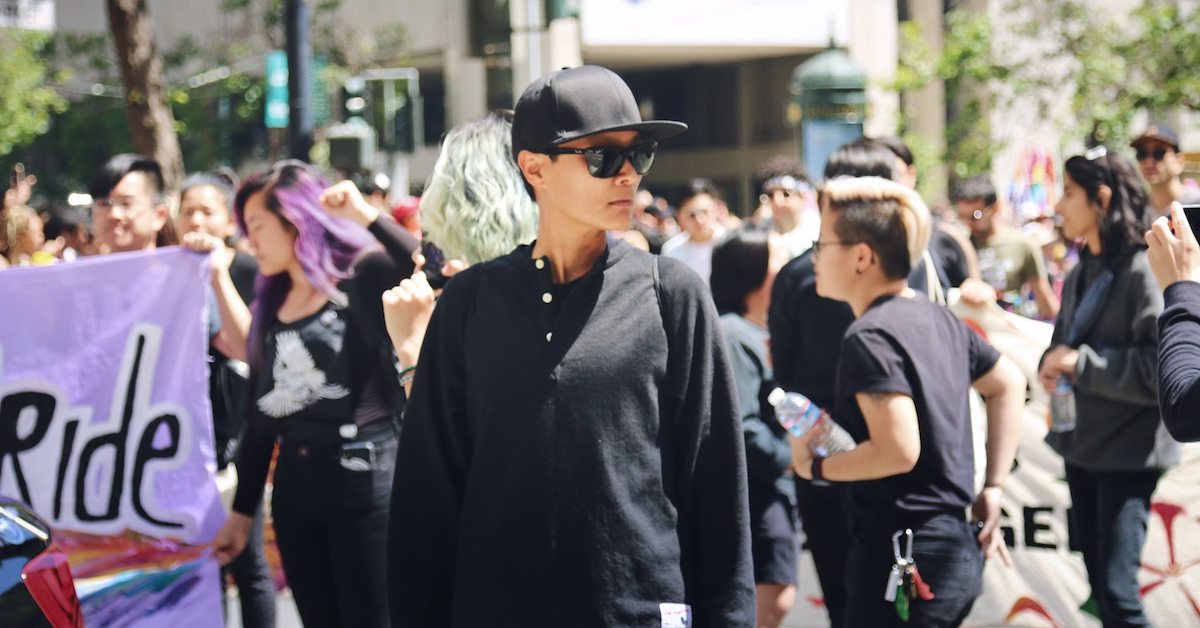How These Queer and Trans API Activists Are Keeping Their Community Safe
 Many LGBTQ people, especially transgender and non-binary/genderqueer people of color, have significant concerns about their safety in public places. According to Horizons’ 2018 SF Bay Area LGBTQ Community Needs Assessment, for more than half of LGBTQ community members concerns about safety limit where they can live, work, and get healthcare.
Many LGBTQ people, especially transgender and non-binary/genderqueer people of color, have significant concerns about their safety in public places. According to Horizons’ 2018 SF Bay Area LGBTQ Community Needs Assessment, for more than half of LGBTQ community members concerns about safety limit where they can live, work, and get healthcare.
LGBTQ activists at API Equality – Northern California (APIENC) understand that the need for safety is urgent. As a basic need, safety is foundational to wellbeing. With this in mind, APIENC activists have trained and operated a community safety team that uses de-escalation tactics to prevent conflicts at major events. The team allows APIENC members to feel safer and more able to bring their full selves to public events.
Based in San Francisco, APIENC is a grassroots organization that serves queer and trans Asian Pacific Islanders in the Bay Area. With only three people on staff, the organization is predominantly powered by volunteers, who form the organization’s five program committees and two leadership committees. Through its work, APIENC strives to train and empower new organizers.
Sammie Ablaza Wills, the current Executive Director, received early organizing training through an APIENC summer internship. They credit APIENC for much of what they know: “The strong relationships and community at APIENC have encouraged me every single day to act from a place of abundance and interdependence and to be fully in my identities, my experiences, and my politics.”
To Ablaza Wills and other members of APIENC, safety is more than just physical. “For me, community safety is caring for the emotional, social, material and spiritual health and safety of everyone in a community,” Ablaza Wills explains. In a safe environment, people can be “empowered to exercise agency and self-determination in all areas of their life.” Then, growth and healing can begin.
Based on this broad understanding of safety, APIENC’s community safety training begins by exploring what safety means. Participants are asked open-ended questions like, “What does it mean for our community to be safe?” Together, they explore what community safety could look like and brainstorm cues that a situation could be becoming unsafe. The practical part of the training focuses on de-escalation tactics developed by activists of the civil rights and gay liberation movements. By the end, volunteers feel empowered to “claim their presence and their power.”
All of APIENC’s conversations about community safety came to a head when APIENC was voted Community Grand Marshal of SF Pride. Members had to grapple with some deep contradictions. On one hand, they knew that many queer and trans people of color feel deeply unsafe at SF Pride due to the police presence. On the other hand, accepting the role of Community Grand Marshal would give them a platform to demand change. Members convened to decide how to move forward. “We wanted to make a decision that was grounded in the experiences of our people and done in a way that was collective,” Ablaza Wills describes.
In the end, they decided to use their position as Community Grand Marshal to advocate for change. Working closely with previous Community Grand Marshals and members of SF Pride, they compiled a list of concrete changes to make the parade more inclusive. They also deployed their community safety team, which was a big success. Members of the APIENC contingent “said that seeing other trans and queer Asian and Pacific Islander folks wearing black, keeping them in line, and making sure that they were going at a pace that was accessible for all, really helped them to feel joy and agitation and excitement.”


